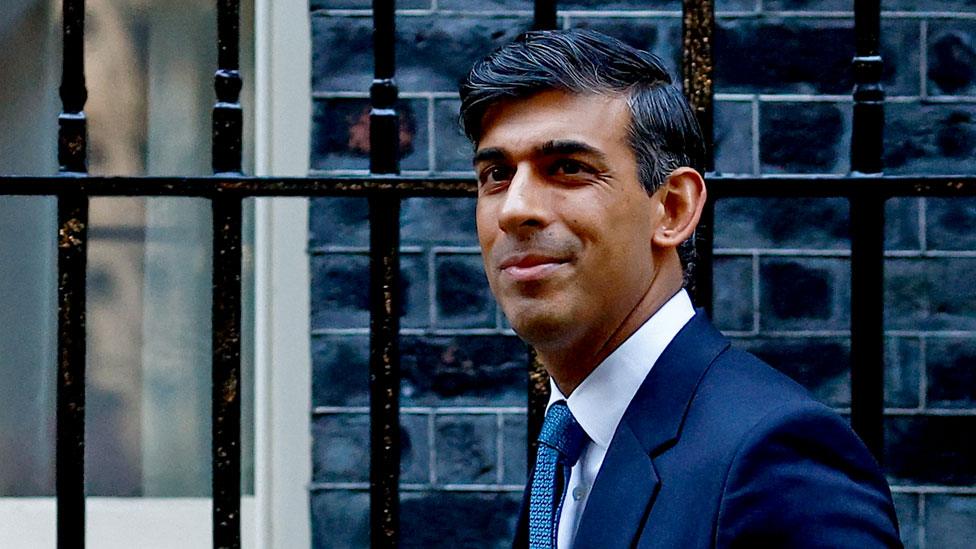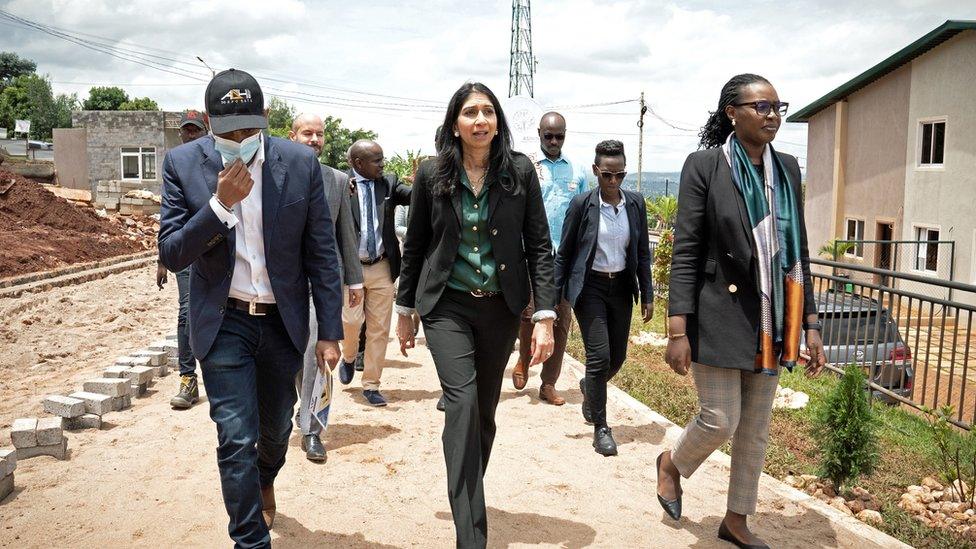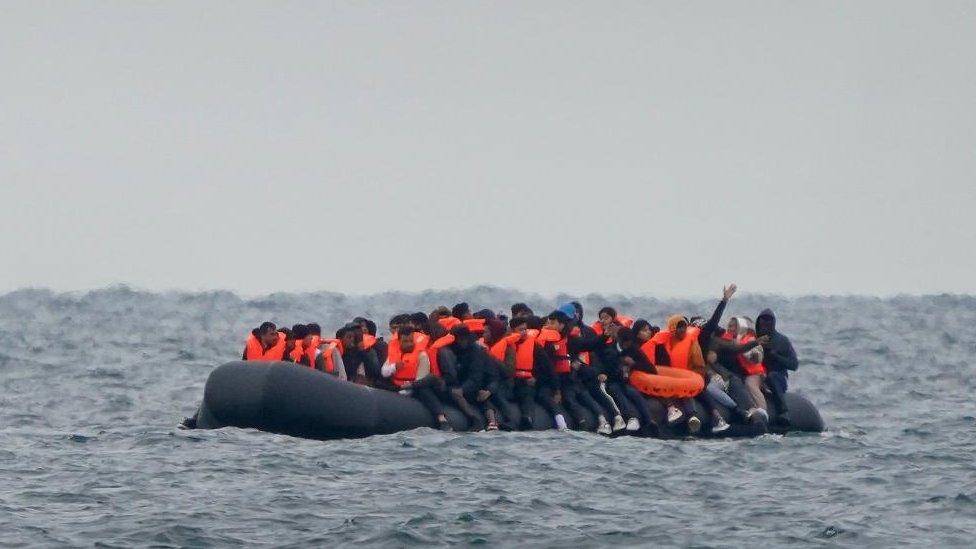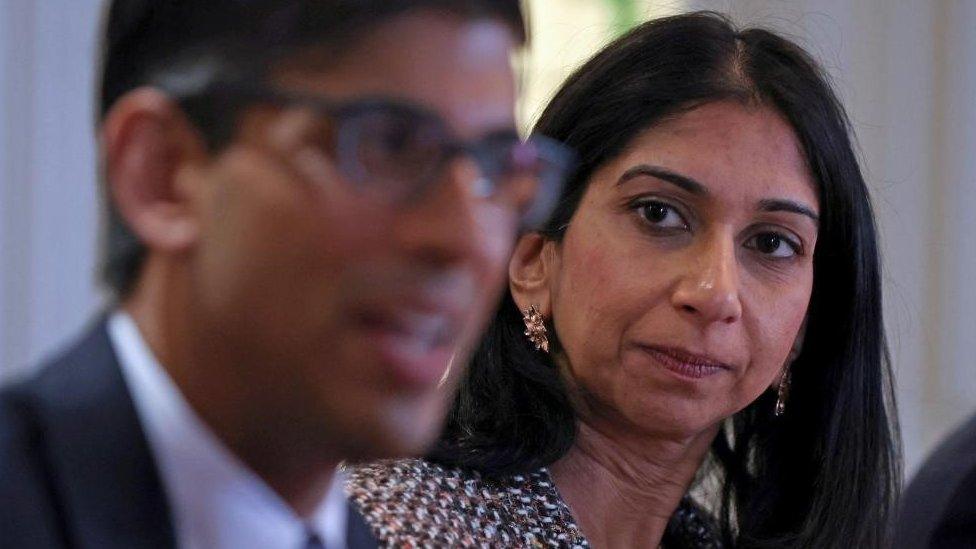Chris Mason: Supreme Court ruling leaves Rwanda policy in tatters
- Published

The government has lost.
And lost big time.
Sometimes, the words of a court room amount to mumbo jumbo to the occasional visitor.
And as a political reporter I am an only occasional visitor to court.
But sitting there in Court 1 of the Supreme Court this morning, the words and the decision were crystal clear.
They leave the government's Rwanda policy in tatters.
At the heart of it, a couple of sentences.
"There is a legal rule that refugees must not be returned to their countries of origin, either directly or indirectly, if their life or freedom would be threatened in that country."
This is known technically as "refoulement".
"The legal test which has to be applied in this case is whether there are substantial grounds for believing that asylum seekers sent to Rwanda would be at real risk of refoulement. The Court of Appeal concluded that there were such grounds. We are unanimously of the view that they are entitled to reach that conclusion."
Pow. They all agree, in the UK's highest court, that the Rwanda plan is a legal dud.
And so now the political row, particularly within the Conservative Party, begins.

Suella Braverman visited Kigali earlier this year
Those on the liberal wing of the Tory Party are clear.
Former First Secretary of State Damian Green told me: "Anyone who thinks leaving the European Convention on Human Rights is a sensible response to this judgement has not read it. It wouldn't make any difference."
But there are those of a radically different view within the party too.
Brendan Clarke-Smith has shared a photo of a Daily Mail headline from a few years ago, external, describing judges as "enemies of the people".
Allies of former Home Secretary Suella Braverman tell me the judgement is "damning" and is "so damning there is nothing the government can do with the tools that they currently have".
They claim Mrs Braverman privately argued within government for an alternative option to be set down in law, where there would be offshore processing of claims in Rwanda, handled by UK officials. Those granted refugee status would have been returned to the UK, but others would not.
"No10 blocked it, because they had blind faith that they would win in court," one ally claimed.
(Of course, that doesn't address what happens to those who were unsuccessful - which is at the heart of the court's judgement.)
Related topics
- Published15 November 2023

- Published15 November 2023
